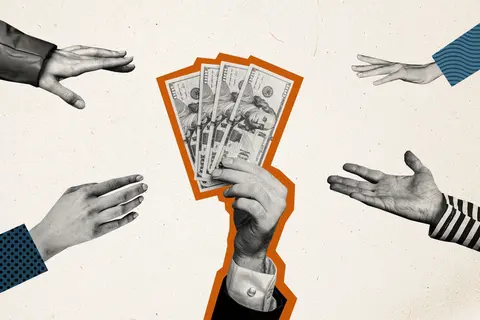How can you be generous and still set boundaries?
Values & Money , Budgeting , Family , Generosity in Giving , Responsibility in SpendingAs a “reformed” people-pleaser I often found myself prioritising other people’s emotions, happiness, belongings, ease of life and money above my own. One scenario that sticks out quite vividly was when I planned my brother's nappy shower to celebrate my nephew. It was supposed to be a simple braai with close friends and loved ones at home, but my family turned it into a big bash. Before I knew it, I had to source funds for decorations and an ever-growing guest list. I rationalized the overspending by reminding myself that this was my “coronation” as a new aunt. This was my mother’s first grandchild. My brother's firstborn and, because we hardly ever celebrated him, I thought it won’t be so bad – but financially, it crushed me.
My need for approval, desire to avoid conflict, and inability to say, “No, we can’t add more people,” had devastating financial implications. I decided to prioritize other people’s emotions, happiness, belongings, ease of life, and money above my own. I simply had no one else to blame but myself. I was more willing to protect someone else’s financial situation than mine, which meant getting into debt, paying for things when I didn’t have the money for them, and spending money I didn’t budget for. But, I took some valuable lessons from this. I had to learn to set financial boundaries going forward, know when to say no, and guard my financial well-being.
A lot of us believe that being generous and giving means we are good people. However, the stress and anxiety of being seen as good simply increased my financial anxiety. I transferred anxiety and worry from one area of my life into another.
So how can you be generous and still set boundaries? Setting boundaries isn’t easy, but it’s necessary. Here are a few tips to help you be generous without compromising your well-being.
Learn which financial requests to say no to: People-pleasers often find it challenging to say no when asked for financial favours or loans, even if it puts a strain on their finances. They may feel obligated to help others financially, even if it means sacrificing their financial stability. Going forward you have to learn and decide when to say no to requests.
Avoid overspending to impress others: People-pleasers may feel the need to spend excessively on material possessions or experiences to gain approval from others. This could involve buying expensive gifts, going on costly trips, or constantly trying to keep up with others' lifestyles, even if it exceeds your financial means. You have to learn that being generous doesn’t guarantee love and acceptance.
Try not to prioritize others' financial needs over your own: People-pleasers may prioritize helping others financially over their own financial goals, such as saving for retirement, paying off debt, or building an emergency fund. This can result in neglecting your financial well-being and potentially jeopardizing your long-term financial security. Having personal financial goals and setting boundaries can help because then you can respond honestly with, “No, I simply can’t extend myself beyond this point.”
Learn to negotiate financial matters: People-pleasers may struggle to negotiate their financial matters out of fear of disappointing or upsetting others. This can result in settling for less favourable financial terms, which may impact their financial outcomes. Having a budget and sticking to it – no matter how difficult it is – will help you navigate your financial well-being.
Avoid taking on financial responsibilities for others: People-pleasers may feel compelled to take on financial responsibilities for others, even if it poses a risk to their financial situation. This could include co-signing a loan for a friend or family member, becoming a guarantor for someone else’s debt, or taking on financial burdens for others without considering their financial capacity. Remember that their inability to help themselves out of their financial turmoil may compromise your financial well-being. If you’re able to, you can include a line item in your budget for helping out family members each month, but it’s important to avoid extending yourself beyond that set amount.
Don’t neglect your financial health: People-pleasers often prioritize the financial needs of others over their financial health. This can involve neglecting financial planning, avoiding budgeting or financial tracking, or failing to address their own financial goals and aspirations. One financially devasting decision can set you back and derail your financial goals and overall health.
Overall, people-pleasing can negatively impact your financial situation by leading to poor financial boundaries, overspending, neglecting your own financial needs, difficulty in negotiating financial matters and taking on undue financial responsibilities for others. Remember that this flawed belief that we have to shower people with gifts or monetary experiences and, in some cases, extend ourselves financially to gain love or approval and make other people's lives easier financially can increase our financial instability as well as contribute towards our resentment of others when we start to struggle with money but they seem ok. Setting financial boundaries will help you address and understand why you would choose to prioritize others over your financial well-being and make sound financial decisions based on your needs, values, and goals.

Bonolo Mokua
Bonolo is a multimedia journalist and content creator at Heartlines. She has experience in online and radio media production and helps spread the Heartlines message on multiple platforms.
Featured






